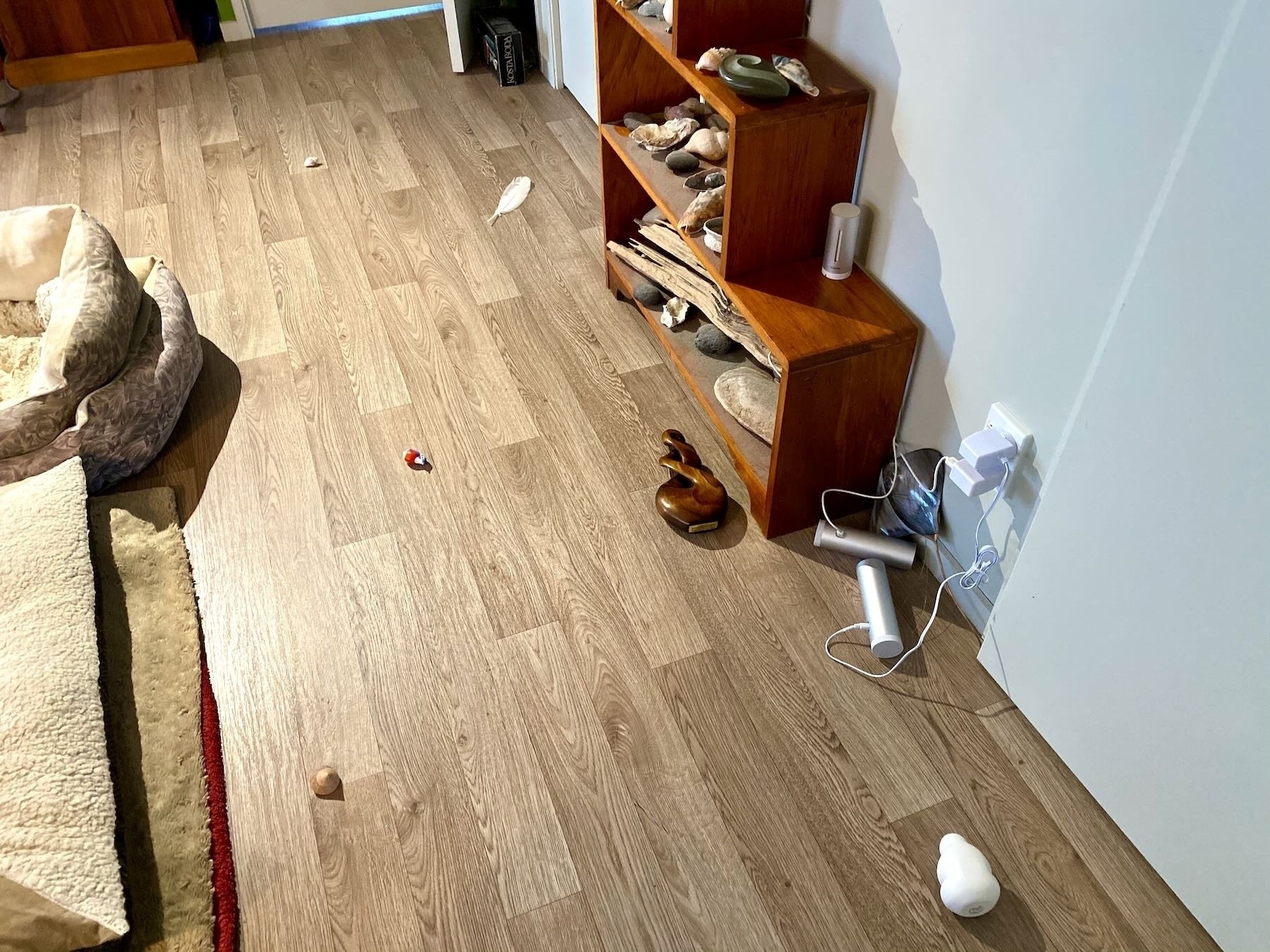Earthquakes and me and you
I've lived most of my life in Aotearoa — that's 60+ years. And in this country we get earthquakes. They're frequent. Mostly we don't even know they've happened because they're too small or too far away to notice. Geonet records about 20,000 quakes a year in this country — GeoNet: Earthquake Statistics. List of earthquakes in New Zealand - Wikipedia.
Sometimes one person will feel a quake while their neighbour won't — buildings and soil structures vary as does quake intensity so the effects are felt differentially.
On rare occasions the quakes are big enough to shake loose items off shelves. A couple of times I've exited our house and felt a bit shaky after a good rattle.

- A big shake on 15 February 2023
- Hmmm, that quake came in two parts, December 2022
- That far away shake certainly woke us all up!, March 2021
- Sleepy as last nights good shake left me awake, June 2020
- M5.8 quake nearby really shook things up, May 2020
- If you never hear from me again it’s because I didn’t follow the rule, October 2018
On very rare occasions (Christchurch 2010 & 2011, Hawke's Bay 1931) quakes are so big they collapse or severely damage buildings, cause injuries and even loss of life.
Buildings in Aotearoa must conform to a strict code which includes provision for earthquakes. That gives us a certain assurance that we'll be fine in most quakes.
Some Kiwis live in shakier parts of the country than do others. That means some of us are more blase about quakes. I'm one of them. Some of my friends though, who live where shakes are less frequent, are more worried by a quake.
In my experience quakes come in all kinds of forms. One time it sounded as though a freight train was roaring through the kitchen. One time in Wellington it felt as though the house was lifted up and kind of twisted around. Sometimes it's a shake; sometimes a roll; sometimes a jolt.
And so when [@val](https://micro.blog/val) asked for interesting or important advice, tips or anecdotes about what to do or what not to do during an earthquake
I initially thought: sure!
But then I realised it was complicated. Val is living in Kyrgyzstan, a country I know nothing about. Do they often get earthquakes? Do their building codes account for quakes? Do authorities check that buildings are up to code? Is the environment mountainous? Could rocks fall and damage nearby buildings or dam rivers that could flood? I have no idea.
Do they get loads of little quakes or a few rare huge quakes? Are the citizens given the advice we receive: Drop, Cover and Hold — Earthquakes — Get Ready — Emergency preparedness in New Zealand?
Do people secure items in their homes, offices and shops in case there's an earthquake? I've used museum wax at home to 'stick' some small items to shelves. In offices and shops there are requirements for securing large or heavy items.
In short, I'm very familiar with earthquakes in my own country but know nothing about earthquakes elsewhere. And that led me to the only general tip I could think of: keep your phone charged and close to hand in case of an emergency. If you have to exit the building in a hurry the phone will allow you to contact others and receive emergency advice. If, heaven forbid, you're injured the phone will allow you to call for help.
Otherwise, take your cues from the locals. They will know their environment, they will know what to do.